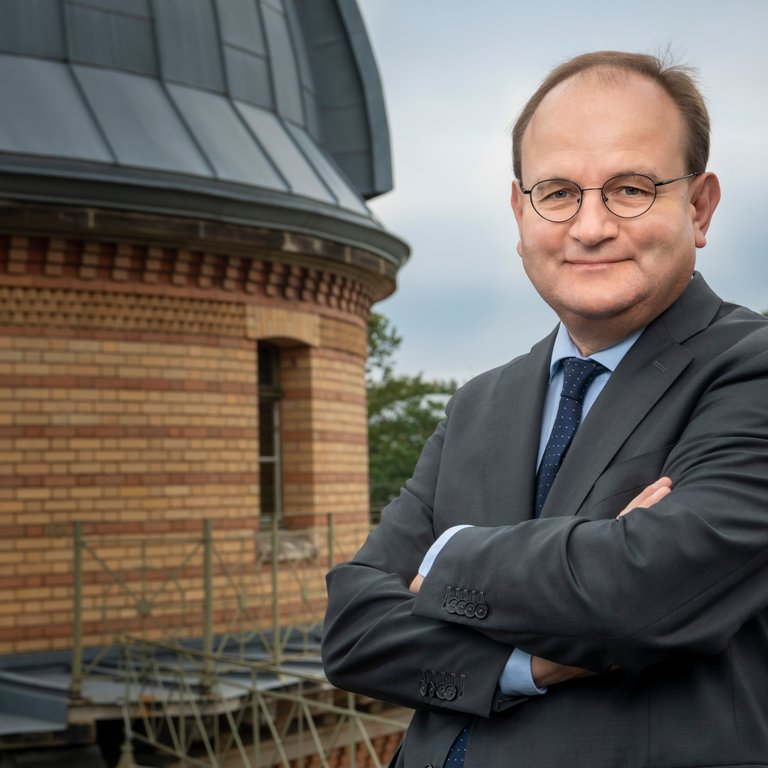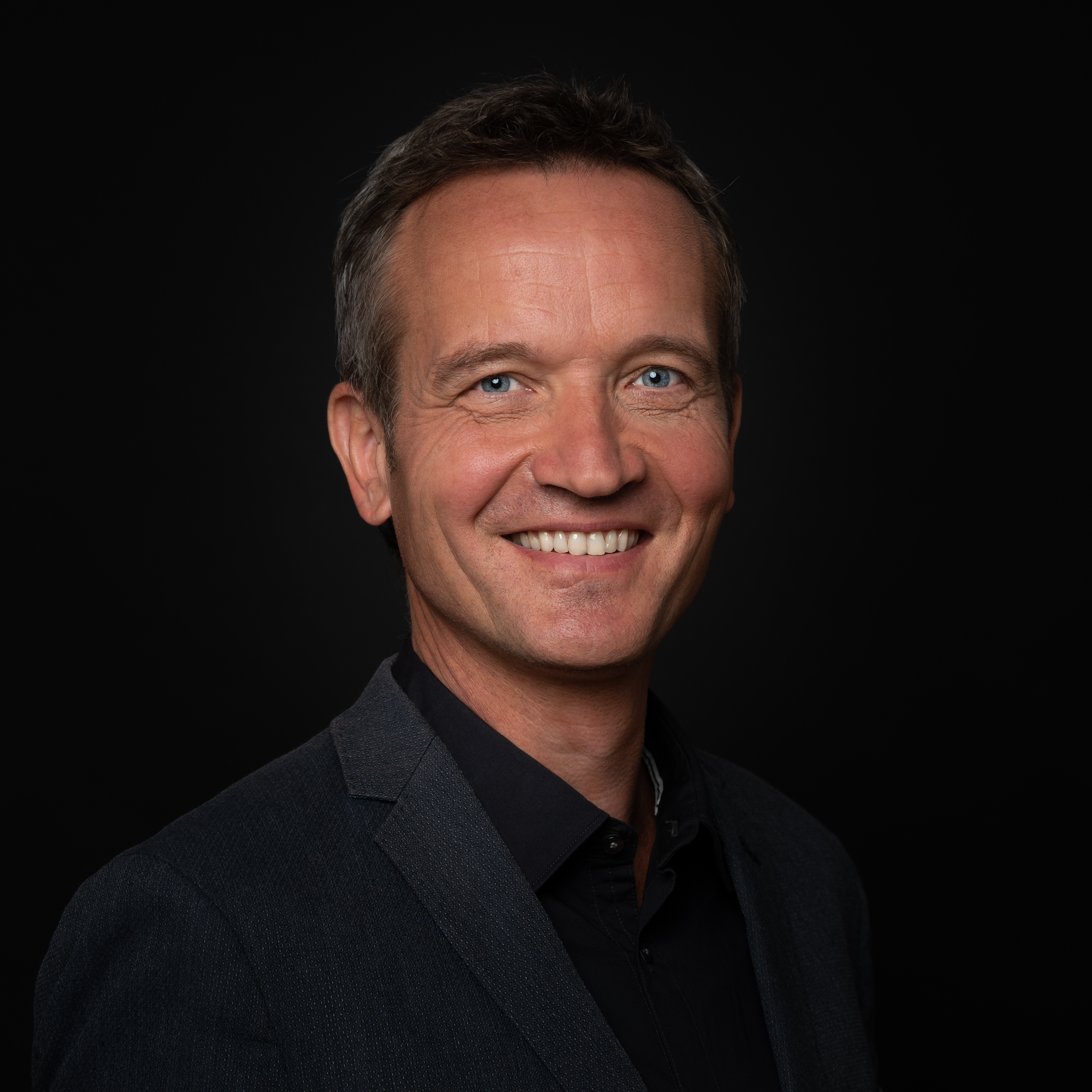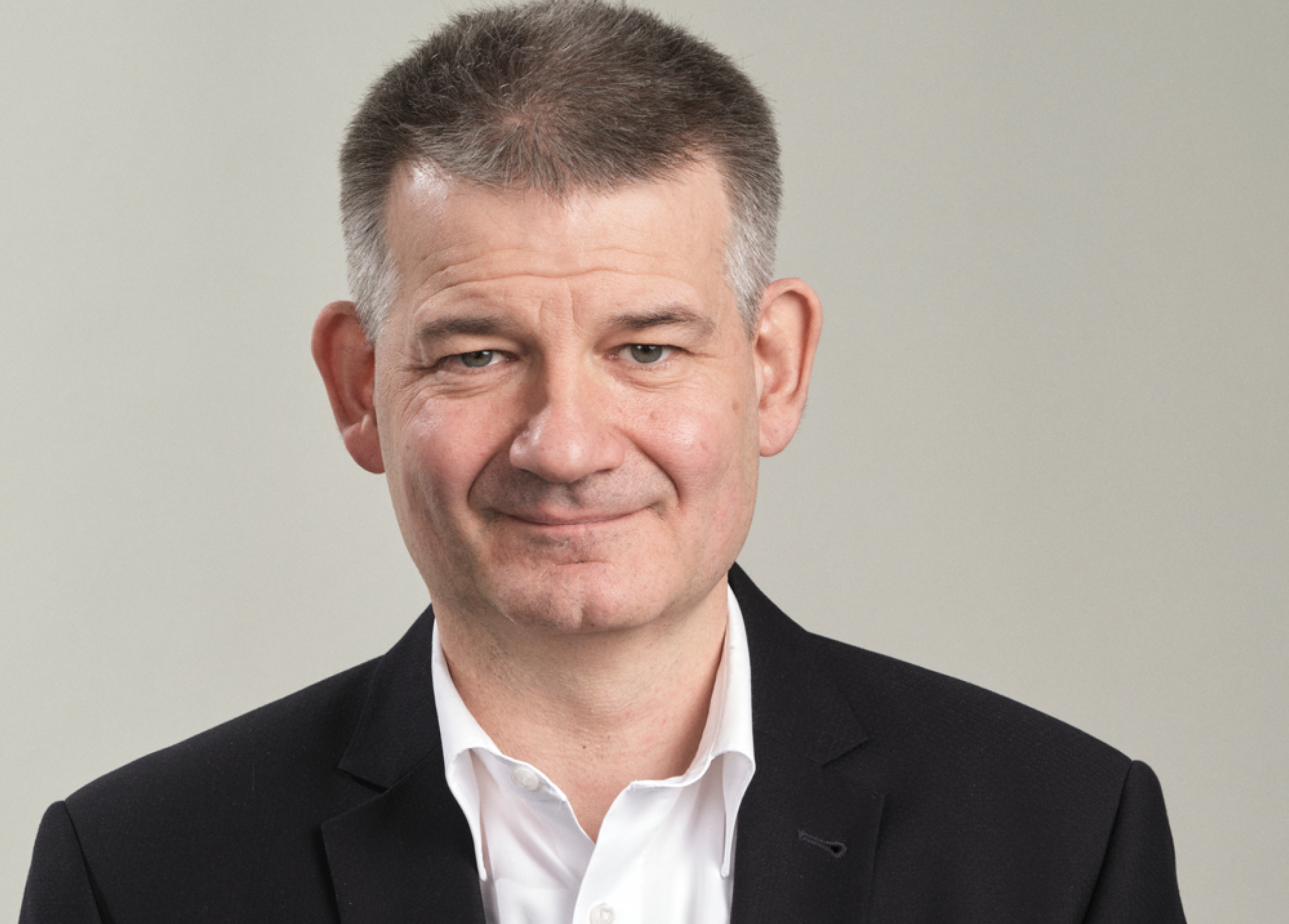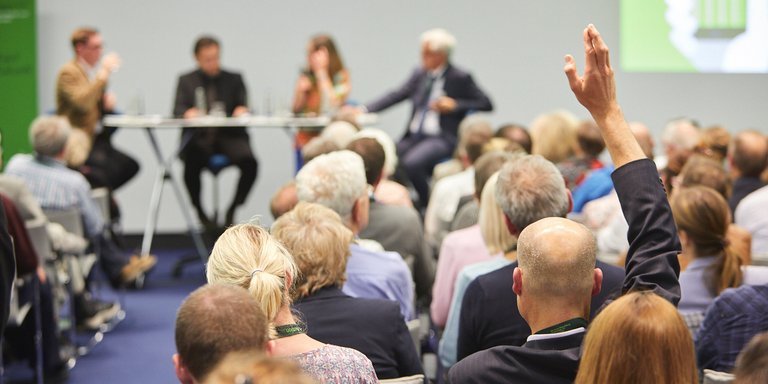
Climate protection and social justice
Dialogue Forum on 12 January 2022
properties.trackTitle
properties.trackSubtitle
The 2022 Dialogue Forums are all about smart solutions for climate protection. At the kick-off event, the discussions revolved around the question: who bears the responsibility for ensuring that we actually achieve the ambitious climate goals? It also had to be clarified how the burdens could be distributed in a socially just manner - both nationally and internationally.
The new Climate Protection Minister Robert Habeck leaves no doubt: "The climate protection measures to date are insufficient in all sectors," was his conclusion after an initial inventory. If Germany did not step up its efforts, the CO2 reduction targets for 2030 and beyond would be missed. An enormous challenge, judged Prof. Dr. Ottmar Edenhofer, Director of the Potsdam Institute for Climate Impact Research (PIK). "In Europe, we are facing the greatest structural change in industrial history. " It will be difficult above all because we have to impose shortages on ourselves in order to achieve the climate goals.
Emissions trading must be expanded
The Club of Rome's assumption 50 years ago that fossil resources are coming to an end and that we must therefore follow a path of sustainability has turned out to be wrong, according to Edenhofer. Measured in terms of how much CO2 the atmosphere can still absorb to limit warming, we must not use all the fossil resources that still lie under the earth. The climate scientist advocated extending CO2 emissions trading, which has so far been limited to industry, to the areas of transport and buildings. "Because this will lead to considerably higher energy prices, compensation payments are necessary to avoid economic and social distortions," he demanded.
Politicians must also clearly communicate the dynamic perspective that this entails, he added. Rising CO2 prices spur technical progress and thus we achieve an alternative energy path. "In the renewable energy world we will see lower electricity prices again, but in the transformation phase we have a mountain to climb. We will not get to a better future by ourselves," the PIK director summed up. Doing nothing is not an alternative, however, because unchecked climate change would not only cost us more, but would also promote social injustice and hit the poorest in particular.

In Europe, we are facing the greatest structural change in industrial history.
Binding CO2 budgets necessary
"Without social justice, the transformation towards more climate protection will not succeed," Prof. Dr. Remo Klinger from the University for Sustainable Development in Eberswalde also expressed his conviction. He sees it as the duty of politicians to implement the stipulations of the Federal Constitutional Court and to set binding budgets for CO2 emissions in the coming years. "It's very easy to work it out: If we want to achieve the 1.5 degree target of Paris with a high probability, we may only release 1.43 gigatons of CO2 into the atmosphere by 2031, measured against the size of the population in Germany. The current climate plans, however, are much higher at 5.66 gigatons," Klinger explained. Another problem is that many measures take place at the state and municipal level, and the federal government does not have the possibility to impose them. "The architecture of the climate protection law alone is inadequate; there is a regulatory patchwork that does not fit at all," he criticised.
On the corporate side, German car manufacturers have a key role to play in the transformation process. "The question of whether has been decided, but the question of how is still open," Hildegard Müller, President of the German Association of the Automotive Industry (VDA), made clear. She emphasised that the automotive industry attaches central importance to climate protection. However, the right social balance must be found, also with regard to the approximately 800,000 jobs in the automotive industry, and other dimensions such as growth and prosperity must not be lost sight of.

Without social justice, the transformation towards more climate protection will not succeed.
Offering people a perspective
"It is about developing several technological solutions and not committing unilaterally to one particular technology path," she outlined the task. Solutions that also contribute to limiting global warming in other regions of the world. This will only work, she said, if we, as an industrialised country, make climate protection a successful model. The car industry would make its contribution, but the process have to be flanked by measures in other areas, such as energy policy. "For many people, change does not just come as an opportunity. The transformation will only succeed if we offer them a perspective and do not lose their acceptance." Therefore, a fair pricing of CO2 is needed and, in a second step, social compensation must be ensured.
"Technology openness is important," Klinger agreed. But if we want to be greenhouse gas neutral in 2045, he said, no new cars with combustion engines should be put on the market after 2030, assuming an average useful life of 15 years. "Cheap electric vehicles are scarce, I think there is a lack of responsibility on the part of the industry because the social component is not taken into account," he criticised. The VDA president pointed to the investment of 220 billion euros by 2026 that the automotive industry is making for the transformation process. "The problem cannot be solved with electric cars alone anyway." We also have to think about alternatives such as hydrogen propulsion, which is favoured in parts of Asia. And last but not least, there is a need to talk about a new transport policy to provide mobility for people who depend on cars in rural areas. "We have to deal with the concrete challenges and take people's problems seriously, otherwise the transformation will not succeed," Müller was convinced.

Many people cannot see change only as an opportunity because of their personal situation. The transformation will only succeed if we gain their acceptance and do not lose sight of the social question.
Financial equalisation across national borders
Edenhofer suggested thinking beyond national borders in climate policy. "The global coal phase-out has the highest priority, otherwise we will slam the door shut on the 1.5-degree target," he warned. In this respect, he said, there is nothing to stop countries that still rely heavily on coal today from facilitating the phase-out through bilateral cooperation. "International partnerships are enormously important," Klinger agreed, but there is nothing even remotely to be found in the Climate Protection Act. "Without transfer payments from industrialised to developing countries, we will not realise the global climate goals," Edenhofer is convinced. He could imagine a kind of international country financial equalisation via an investment fund into which the industrialised countries would pay. The money from the fund could then replace part of the transformation costs incurred by the developing countries as a result of the coal phase-out.
The Paris climate agreement sets clear goals and demands clear commitments. However, when it comes to implementation, many governments get bogged down in targets that are too small-scale. This slows down the process and prevents efficient climate protection. The speakers therefore agreed in their closing statements that it is better to have few, clearly defined limits and to pursue them consistently, instead of introducing a multitude of detailed targets that cannot then be checked.
The task of the century, climate protection, can only succeed if politics and business pull together and the change is socially just - both nationally and internationally. Finding a social consensus here is certainly not an easy task. However, there is no way around it if we do not want to permanently damage the basis of life on our planet.
Video
************************************************




